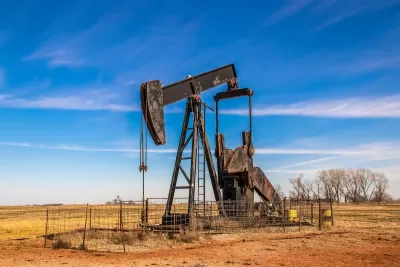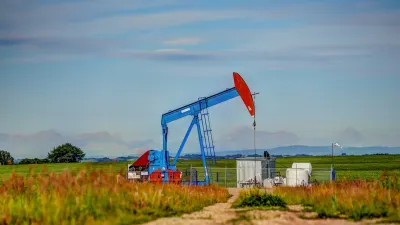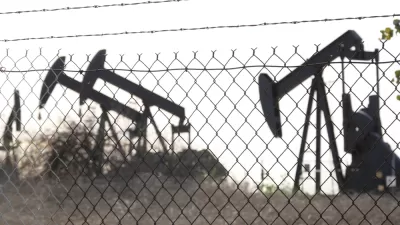An Environmental Liability Tax (ELT) on oil extraction would fund orphaned well cleanup, shift financial responsibility to oil companies, and address the environmental and public health risks posed by abandoned wells.

The United States faces a significant crisis with orphaned and uncapped oil wells, which number between 310,000 and 800,000 according to the Interstate Oil and Gas Compact Commission. These wells, often abandoned without an owner to take responsibility, pose severe environmental and public health risks, including methane leaks and groundwater contamination. Despite efforts like the Department of the Interior’s plugging of 9,000 wells in 2024, the scope of the problem far exceeds current funding and mitigation measures. The Bipartisan Infrastructure Law allocated $4.7 billion to address the issue, but cleanup costs, which range from tens of thousands to millions per well, demand a more sustainable and systemic solution.
As reported by Andrew Leahey, at the heart of the crisis is a combination of regulatory loopholes and cost-shifting practices in the oil and gas industry. Aging wells are frequently sold to smaller, precarious operators who lack the financial capacity to cap or remediate them, often leaving taxpayers to shoulder the burden when these companies declare bankruptcy. Current bonding requirements intended to ensure cleanup funds are insufficient, typically covering less than 2 percent of actual costs. This financial shortfall exacerbates the problem as the nation’s oil reserves dwindle and the industry faces reduced resources to address these liabilities.
An Environmental Liability Tax (ELT) offers a feasible and enforceable solution by requiring oil and gas companies to pay a per-barrel fee at the point of extraction. These funds would be placed in a managed trust exclusively for well capping, site remediation, and land restoration. The ELT would shift financial responsibility back to the entities profiting from resource extraction, eliminate the need to track down bankrupt operators, and reward companies maintaining high environmental standards through tax credits. By creating a predictable funding stream, an ELT could address the orphan well crisis more effectively while promoting accountability and environmental stewardship in the oil and gas sector.
FULL STORY: Towards An Environmental Liability Tax For Oil And Gas Wells

Trump Administration Could Effectively End Housing Voucher Program
Federal officials are eyeing major cuts to the Section 8 program that helps millions of low-income households pay rent.

Planetizen Federal Action Tracker
A weekly monitor of how Trump’s orders and actions are impacting planners and planning in America.

Ken Jennings Launches Transit Web Series
The Jeopardy champ wants you to ride public transit.

Washington Legislature Passes Rent Increase Cap
A bill that caps rent increases at 7 percent plus inflation is headed to the governor’s desk.

From Planning to Action: How LA County Is Rethinking Climate Resilience
Chief Sustainability Officer Rita Kampalath outlines the County’s shift from planning to implementation in its climate resilience efforts, emphasizing cross-departmental coordination, updated recovery strategies, and the need for flexible funding.

New Mexico Aging Department Commits to Helping Seniors Age ‘In Place’ and ‘Autonomously’ in New Draft Plan
As New Mexico’s population of seniors continues to grow, the state’s aging department is proposing expanded initiatives to help seniors maintain their autonomy while also supporting family caregivers.
Urban Design for Planners 1: Software Tools
This six-course series explores essential urban design concepts using open source software and equips planners with the tools they need to participate fully in the urban design process.
Planning for Universal Design
Learn the tools for implementing Universal Design in planning regulations.
Heyer Gruel & Associates PA
Ada County Highway District
Institute for Housing and Urban Development Studies (IHS)
City of Grandview
Harvard GSD Executive Education
Toledo-Lucas County Plan Commissions
Salt Lake City
NYU Wagner Graduate School of Public Service





























